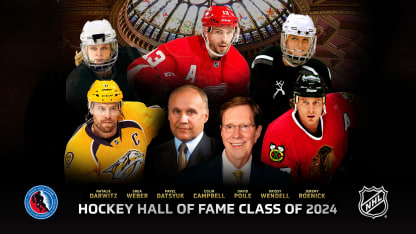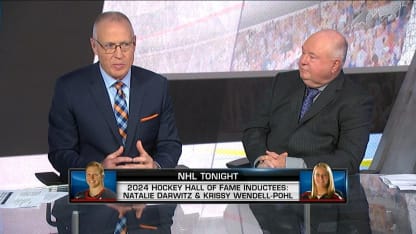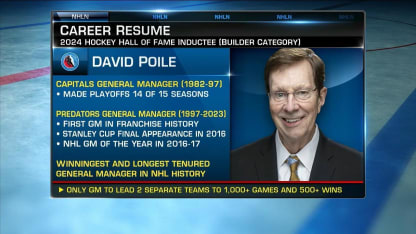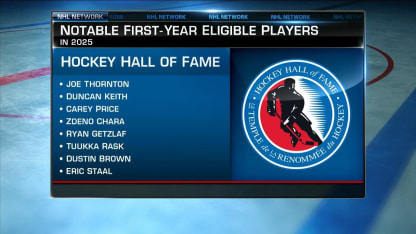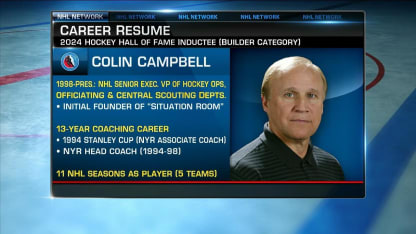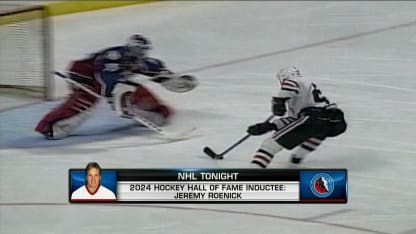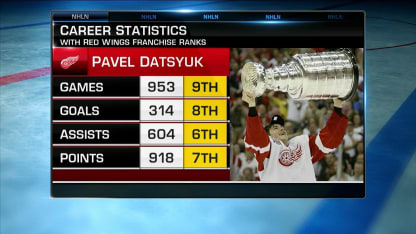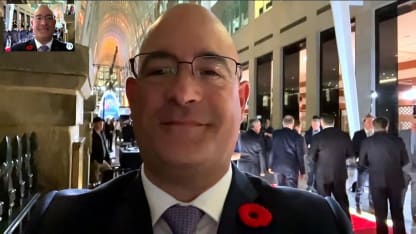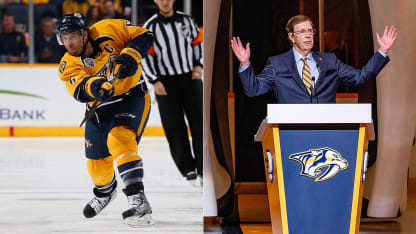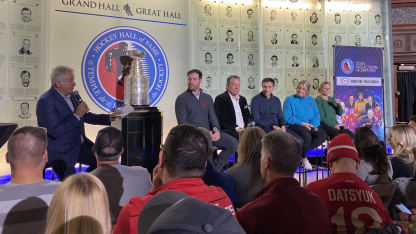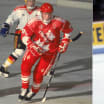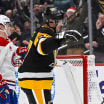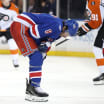COLIN CAMPBELL: Jack of all trades
Shortly after he was fired by the New York Rangers during the 1997-98 season, Colin Campbell joined the National Hockey League, where he would forge a legacy in hockey operations, officiating and central scouting.
The man who offered him the job and a chance to join the NHL family: Commissioner Gary Bettman.
Almost three decades later, it was Bettman who welcomed Campbell to another family: This time, the Hockey Hall of Fame.
“He has never received the recognition he deserved,” said Bettman, a member of the Hall’s Class of 2018. “He may like it that way.
“But I’m sorry, my friend, hockey’s brightest spotlight has found you, and it couldn’t be shining on a more worthy person.”
Campbell was named the NHL's senior vice president, director of hockey operations in 1998 after a respected career as a player and coach. All in all, he’s spent 51 years in the game, and counting.
As a defenseman, he was selected by the Pittsburgh Penguins in the second round (No. 27) of the 1973 NHL Draft. Over 11 seasons from 1974-85, Campbell appeared in 636 regular-season games with the Penguins, Colorado Rockies, Edmonton Oilers, Vancouver Canucks and Detroit Red Wings, getting 128 points (25 goals, 103 assists) and 1,295 penalty minutes.
Following his retirement in 1985, Campbell became an assistant coach with the Red Wings, a stint that lasted until 1990. He then joined the Rangers as an associate coach for parts of three seasons -- he was named coach of Binghamton of the American Hockey League midway through the 1992-93 season -- before being promoted to replace Mike Keenan as coach following New York's Stanley Cup championship in 1994.
Campbell led the Rangers to the Stanley Cup Playoffs in each of his first three seasons as coach, including advancing to the Eastern Conference Final in 1997. His record over four seasons was 118-108 with 43 ties.
But it’s after he joined the League that he left a significant imprint on the sport.
In 2005, Campbell spearheaded a movement to make the game more exciting, more exhilarating, more dramatic. Included in the changes: the center red line no longer played a role in the two-line pass, and obstruction such as hooking and holding would be penalized more closely.
The result: a game that was more fluid and pleasing to both play and watch.
“The game was broken on the ice. The hooking. The holding. The interference,” Campbell said during his induction speech. “It was no fun for players to play the game.
“Fans lost interest in the game. When their team was down, they knew there was little chance for a comeback. In short, the game was broken and the player with skill was completely neutralized.”
Something needed to be done. It was.
“Part of the reason I’m being honored with this induction into the Hall of Fame is so many players, coaches, GMs, owners, on-ice officials, league associates, all of who contributed. We met dozens of times 20 years ago, and we participated in dozens of on-ice sessions to test rules.
“To this day we continue to monitor the game, focusing on rewarding skill and offense, ensuring the game of hockey remains great for our fans, but more importantly to make it fun for players to play.”
These days it has become just that, thanks in part to Colin Campbell. -- Mike Zeisberger, staff writer
